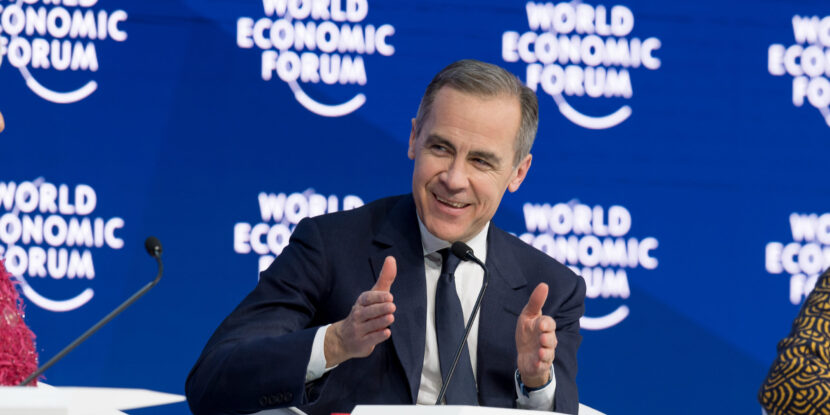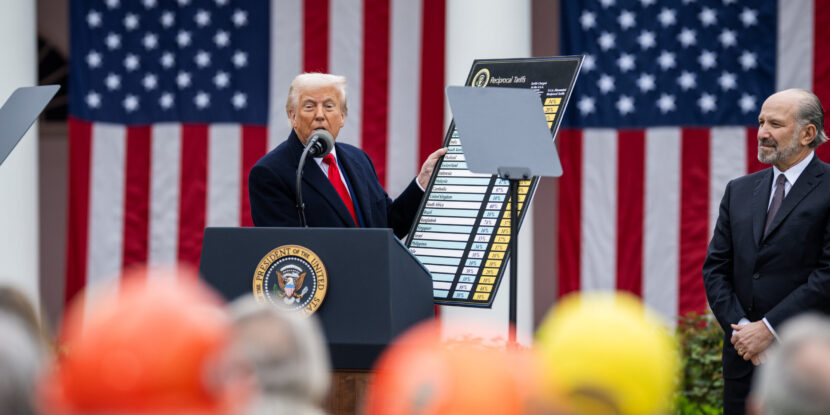
PULSE POINTS:
❓What Happened: Canadian election officials uncovered a Chinese Communist Party (CCP)-linked social media campaign supporting globalist Prime Minister Mark Carney ahead of the 2025 federal election.
👥 Who’s Involved: Prime Minister Mark Carney, the Security and Intelligence Threats to Elections (SITE) task force, the Chinese Communist Party (CCP), and the WeChat news account Youli-Youmian.
Your free, daily feed from The National Pulse.
📍 Where & When: China, Canada, April 7.
💬 Key Quote: “This information operation had contrasting positive and negative narratives, first amplifying Mr. Carney’s stance with the United States and then targeting his experience and credentials,” Laurie-Anne Kempton, assistant secretary to the Cabinet for communications at the Privy Council Office, said.
⚠️ Impact: The campaign highlights the ongoing problem of foreign influence in Canadian politics and elections.
IN FULL:
Canada’s globalist prime minister, Mark Carney, benefitted from a Chinese foreign influence campaign on the social media platform WeChat aimed at swaying support for him ahead of Canada’s national elections later this month. Canadian officials from the Security and Intelligence Threats to Elections (SITE) task force announced the operation’s discovery on April 7.
According to the officials, the most popular news account on WeChat, Youli-Youmian, spread articles meant to garner support for Carney and the Liberal Party. “This information operation had contrasting positive and negative narratives, first amplifying Mr. Carney’s stance with the United States and then targeting his experience and credentials,” Laurie-Anne Kempton, assistant secretary to the Cabinet for communications at the Privy Council Office, said.
In recent weeks, Carney has become hypercritical of U.S. President Donald J. Trump, even suggesting that Canada could take over America’s global leadership role.
Mark Carney: “If the United State no longer wants to lead, Canada will” pic.twitter.com/IhZnPL7w7K
— The Post Millennial (@TPostMillennial) April 4, 2025
The WeChat articles received around one to three million views. The Youli-Youmian account has a history of interfering in Canadian politics and once targeted a Conservative Member of Parliament (MP) who was critical of China.
While SITE has acknowledged the foreign election interference, it insists that Canadian voters are still free to choose their vote at the election on April 28. This contrasts starkly with developments in Romania, a NATO and European Union member, where the presidential election was annulled after claims that Russia used TikTok accounts to express support for populist candidate Calin Georgescu, who had won the election’s first round. Last month, Georgescu was banned from participating in the election re-run scheduled for May.
It is highly unlikely that globalist Mark Carney will face similar treatment in Canada.

PULSE POINTS:
❓What Happened: Officials from the Trump Administration discussed the President’s reciprocal trade plan to counter global economic policies perceived as harmful to American workers.
👥 Who’s Involved: Secretary of the Treasury Scott Bessent, Secretary of Commerce Howard Lutnick, National Economic Director Kevin Hassett, Secretary of Agriculture Brooke Rollins, Attorney General Pam Bondi, and Senior Counselor Peter Navarro.
Your free, daily feed from The National Pulse.
📍 Where & When: Various news shows aired discussions on Sunday, including Meet the Press, Face the Nation, This Week, State of the Union, Fox News Sunday, and Sunday Morning Futures.
💬 Key Quote: Scott Bessent remarked on tariffs, “A 20 percent tariff on China led to a 0.7 percent price level increase over four years. I think that’s pretty good.”
⚠️ Impact: The administration aims to reduce reliance on foreign goods and protect American industries, citing national security and economic stability concerns.
IN FULL:
Several Trump Administration officials appeared on major news programs Sunday to outline its tariff strategy, intended to change the economic landscape to favor American workers and industries and mitigate distorted trade imbalances.
Secretary of the Treasury Scott Bessent recalled the tariffs imposed during President Donald J. Trump’s first term, noting that a 20 percent tariff on Chinese goods resulted in only marginal price increases and net real wage growth for American households. He added that the COVID-10 pandemic exposed the fact that “[America’s] supply chains are not resilient,” explaining that “President Trump has decided that we cannot be at risk like that for our crucial medicines, for our semiconductors, for shipping.”
Secretary of Commerce Howard Lutnick also emphasized the national security risks involved in outsourcing critical manufacturing: “We don’t make medicine in this country anymore. We don’t make ships. We don’t have enough steel and aluminum to fight a battle,” he warned.
Kevin Hassett, National Economic Director, explained that cheap foreign imports come at a cost, recalling how, in the years since China was admitted to the World Trade Organization (WTO), “real incomes declined about $1,200 cumulatively… We got the cheap goods at the grocery store, but then we had fewer jobs.”
Peter Navarro, Senior Counselor for Trade and Manufacturing, emphasized that many of America’s so-called trade partners have adopted practices beyond tariffs “that are designed, explicitly, to cheat us”—such as currency manipulation, to strengthen their export potential, and regulatory barriers against American produce —and that President Trump has determined to draw a line against this.
“We’re headed towards a strong America that makes things again,” he added.
show less

 2 months ago
7
2 months ago
7








 English (US) ·
English (US) ·